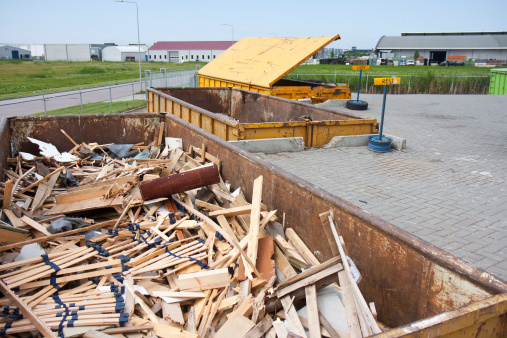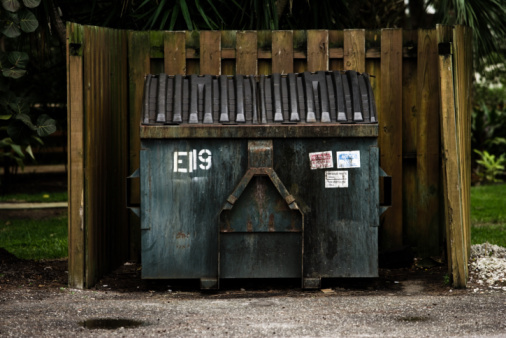Massachusetts Dumpster Laws: What You Need to Know

Before putting a dumpster on your property, know what you need to do legally.
Renting a dumpster in Massachusetts should be fairly simple. After all, it’s just throwing away trash, right? Unfortunately, it’s not quite that simple. There are laws you need to follow at the state and local level in order to have a dumpster on site and permits you’ll need to get. Here’s what you need to know about Massachusetts dumpster laws at the state and local level.
State Laws
On the state level, Massachusetts doesn’t have any specific laws about dumpsters. It generally leaves points like size, location, and other matters to town governments. It does, however, have some very specific laws about what you can put in a dumpster that you’ll need to be aware of.
First of all, the state has very specific rules about the disposal of certain relatively common toxic substances you may find while demolishing or remodeling a home (especially an older home). For example, lead paint may need to be removed by a professional deleader depending on what you’re throwing out. If you come across asbestos, you’ll need to either have a special permit to work with it or shut down the work site.
There’s good reason for laws like this. Anybody at the work site can be at serious medical risk depending on the situation, and improperly disposed-of materials can be a risk to others when they’re trucked off. Before any job, make sure that anything you’re removing can be thrown into a dumpster. Otherwise you may find yourself with a pile of fines or even in court.

Even a discreet dumpster needs a permit.
Local Laws
Next, there are the local laws, and this is generally what confuses people the most.
Each town has its own rules for renting and using a dumpster on your property. While these laws are generally consistent in their requirements, each town may have its own quirks or particular issues that you’ll need to address, so before you rent a dumpster, make a few phone calls.
Start with your town’s Board of Health. As a rule, towns in Massachusetts put this board in charge of temporary dumpster permits. Usually these permits are good for thirty days, although some towns may grant extensions depending on the situation. The Board of Health should be able to get you oriented about what’s necessary to get a dumpster on your property. Usually the permit has a minimal cost; the board is likely more concerned with the public health. It’s unlikely your permit won’t be approved unless you’re disposing of, for example, organic waste or excessive amounts of trash. You may need to arrange daily pick-up depending on the situation.
One thing you’ll also need to know is whether you’ll need a permit to block the sidewalk or place the dumpster on the street if this is required by the job. Here, towns tend to be inconsistent. Some towns couldn’t care less, and others will charge you an arm and a leg.
It’s important to hire a dumpster company that knows about these potential issues, so for your dumpster rental needs, go with Graham Waste. We’ve dealt with the permits and the problems and are able to help guide you to both picking the right dumpster for your job and helping you get what you need to use it. If you need a dumpster, contact Graham today.
